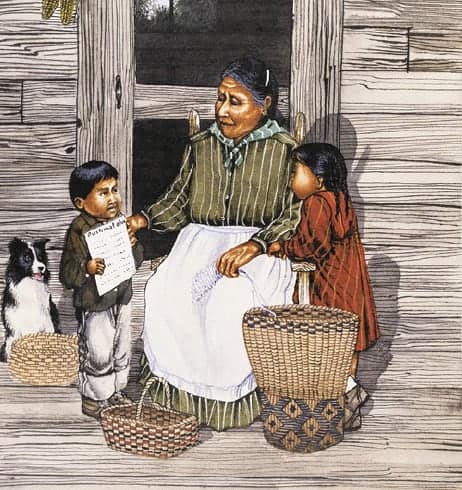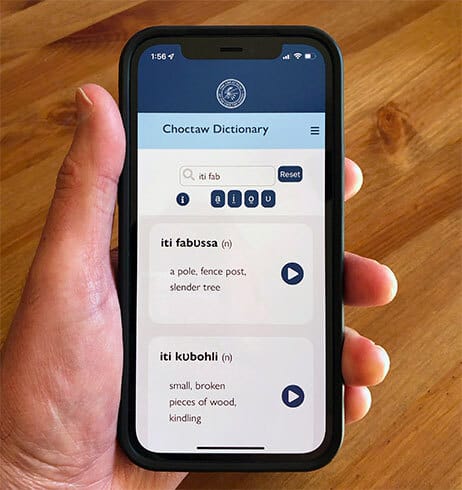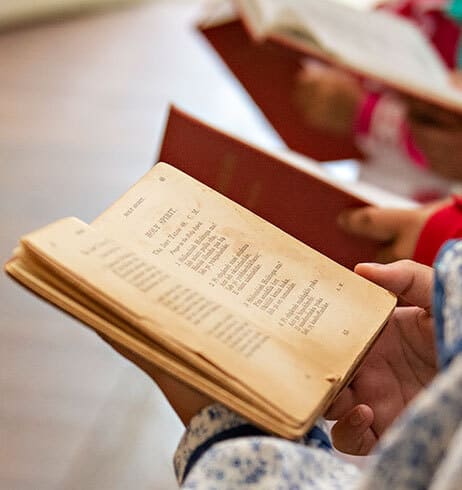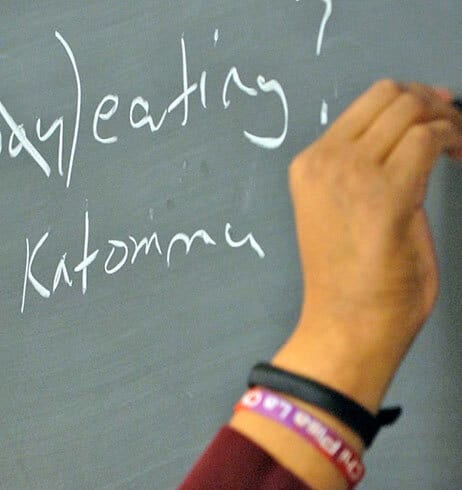Language
School of Choctaw Language
CHOCTAW GREETINGS AND SALUTATIONS
When people speak the Choctaw language, it preserves, promotes and protects Choctaw culture and sovereignty. Watch this video to learn all the ways to say “hello” and “goodbye” in Choctaw.

Choctaw Nation Film Festival
The Choctaw Language Department invites high school students to participate in a film competition. Winners will be announced during the Princess Pageant at the Annual Labor Day Festival.
Common Phrases
halito
hah-lih-toh
hello
yakoke
yoh-koh-keh
thank you
chi pisa la chike
che pe-hn-sa la che-keh
until we meet again, see you later
Choctaw Lesson: Chahta Anumpa
This scenario highlights what to expect when visiting the Choctaw Cultural Center.




CHOCTAW LANGUAGE CLASSES
Find in-person and virtual classes that fit your schedule. Sign up today!
See More
Choctaw I
Learn the Choctaw language through comprehensive lessons, downloadable resources and audio clips. Begin your journey with the first module.
See moreChoctaw II
Continue your Choctaw language learning journey with the second module using comprehensive lessons, downloadable resources and audio clips.
See more